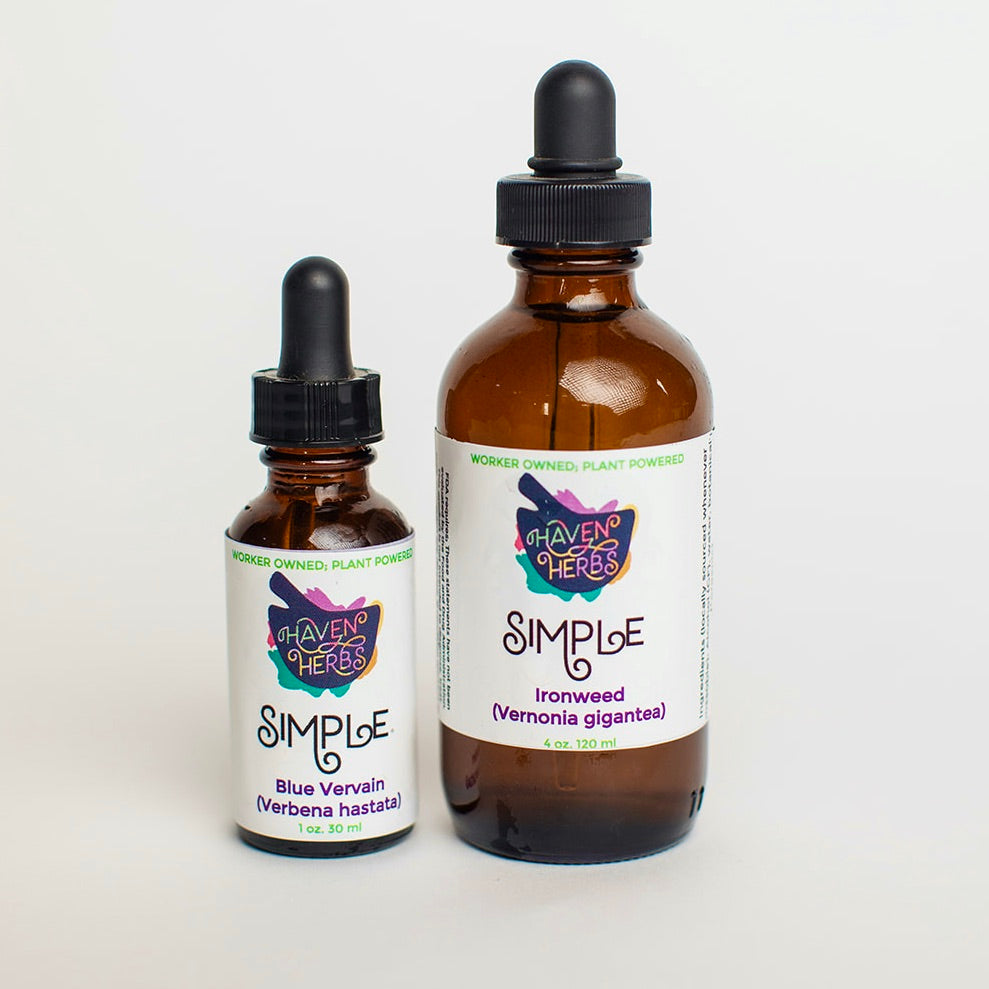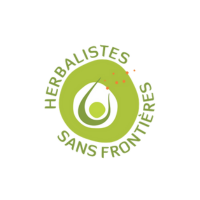Simples (Single Plant Tinctures) J-L
Simples (Single Plant Tinctures) J-L
One plant. One bottle. Infinite badassery.
Sometimes you don’t want the whole herbal marching band—you just want one rockstar plant doing its thing. That’s where our simples collection comes in: single-plant tinctures made the old-school way—just organic herbs, water, alcohol, and a whole lotta respect for nature’s finest.
Simples let you zero in on what actually works for your body without the guesswork. One plant, one purpose, one step closer to herbal mastery. Whether you're building your own apothecary, fine-tuning your wellness routine, or just vibing with your favorite green ally, simples give you the power to experiment, explore, and fine-tune your health like the wild botanical wizard you are.
We make tons of simples behind the scenes for our formulas, and now we're letting you raid the vault. Available in easy-to-carry 1 oz. glass dropper bottles—perfect for pockets, purses, and witchy utility belts.
Simples Collection: Pure plant power, no entourage required.
All information on historical use per plant listed below is for educational purposes only (the FDA makes us state this).
Jamaican Dogwood (Piscidia piscipula): For when you need your body to stop screaming and just... chill. Jamaican Dogwood is a heavy-hitting sedative, pain reliever, and muscle relaxer wrapped up in bark. Legendary for migraines, neuralgia, insomnia-from-pain, and that can't-even-move arthritis, it’s basically nature’s version of "Netflix and collapse." (Follow dosing instructions unless you want to experience extreme nap mode.)
Japanese Knotweed (Fallopia japonica): The weed everyone loves to hate... unless you’re into breathing, healing, and Lyme support. Infamous as an invasive monster, but glorious as an herbal ally, Knotweed helps with respiratory gunk, bleeding, skin issues, and even gum disease. Plus, it’s making headlines in the natural Lyme disease toolkit. Proof that even the villains of the plant world can be heroes in disguise.
Lady's Thumb (Persicaria maculosa): Small plant, big energy.
Used by Native American nations for stomach troubles, poison ivy, wound healing, and even as horse bug spray (seriously), Lady’s Thumb is a scrappy little fixer. Whether your belly’s grumbling or your skin’s whining, this humble herb shows up swinging.
Lemon Balm (Melissa officinalis): Mood lifter, tummy tamer, viral fighter—basically herbal sunshine. Since the Middle Ages, Lemon Balm has been the patron saint of stress relief, happy tummies, and restful sleep. Plus, it's a heavyweight antiviral. One whiff and your nervous system sighs with relief.
Licorice (Glycyrrhiza glabra): The sweet-talking herb that plays well with others.
Licorice does it all: antiviral, antibacterial, antifungal, Qi-raising, flavor-fixing, toxicity-taming—and that’s just before breakfast. In TCM, it’s the ultimate sidekick, boosting every formula it touches. In the West, we mostly high-five it for its digestive magic. Either way: respect the root.
Linden (Tilia): For fevers, flus, frayed nerves, and itchy everything.
Linden is the botanical equivalent of a cozy weighted blanket—helping with fevers, coughs, itchy skin, blood pressure swings, and those frantic heartbeat moments. Sip some and remember what it feels like to be calm again.
Lobelia (Lobelia inflata): Because breathing should not feel like a part-time job.
Used for asthma, bronchitis, whooping cough, and even apnea in newborns, Lobelia opens the lungs like a boss. It's also got mild sedative powers to help your body realize it doesn't have to panic about every little thing. (Just don’t overdo it—Lobelia is a bit of a wild child.)
Loquat leaves (Eriobotrya japonica): The subtropical superstar you didn’t know you needed. Loquat leaves come loaded with antioxidants and battle everything from inflammation and infection to pain, diabetes, and aging. Basically, it’s a leafy multitool with thousands of years of street cred. Grandma’s favorite for a reason.
Lungwort (Sticta pulmonaria): Lungs feeling like overcooked spaghetti? Lungwort’s on it. Named (and shaped) for what it helps, Lungwort clears respiratory junk, soothes stomach and urinary woes, and has been used historically to fight tuberculosis. If your lungs are throwing a tantrum, this mossy miracle’s got your back.
(Real) Ingredients
(Real) Ingredients
We use real pronounceable ingredients that are ethically sourced and high quality for your product.
We either grow or work with local growers to source for our formulas. This supports the local economy, gives us the most potent plants & reduces reliance upon fossil fuels.
We make products from herbs that will grow here over herbs from the Amazon, China, or Africa. Oftentimes, those trendy herbs are taken in an unsustainable way & local people do not have access to their native medicines any longer. Bioregional herbalism is where it's at!
Packaging
Packaging
We are working to eliminate plastic from our packaging. Currently, 99% of our packaging is metal, glass, or paperboard. We are always looking for ways to eliminate microplastics from your body and the planet!
How to Use
How to Use
Herbal remedies, supplements, and tonics are fundamentally different from pharmaceuticals (and we like it that way). They are designed to restore your body and its systems to homeostasis gently- working with your body.
Specifics on dosages and administration for all products are in our FAQ. Find the FAQ in the menu under the "About" Section.
We post basic dosage guidelines, but keep in mind if you have more body mass or a faster metabolism than the average bear, you may need to take a larger dose than indicated. If there are hard-and-fast limitations on how often you can take the product, it will be listed on the package. Most can be used up to six times daily without problems (but we doubt that you would need to do that).
Remember, there are no "magic bullets" in life, and any product (herbal, pharmaceutical, or otherwise) claiming 100% success without knowing you, your constitution, and your lifestyle is lying and trying to get into your wallet. Often, herbalists (and MDs) need to try several products before we find the one that works for your unique biochemistry.
Feel free to email us if the product didn't quite do the job, we can recommend another that could do the trick. We are blessed with many plants that have the same action in the body- and often it's just a matter of finding the right one for you.
The Necessary legal-ese
The Necessary legal-ese
Haven Herbs is not your licensed medical provider and therefore cannot legally offer advice or products to diagnose, treat, or cure any illness.
The content on this site is not intended to substitute for advice given by a physician, a pharmacist, or another licensed healthcare professional. You should not use this information as self-diagnosis or for treating a health problem or disease.
Information and statements on this website regarding dietary supplements have not been evaluated by Health Canada or the FDA of the United States, and are not intended to diagnose, treat, cure, or prevent any disease or health condition. See a practitioner if any condition persists or worsens!
Share






